News
-
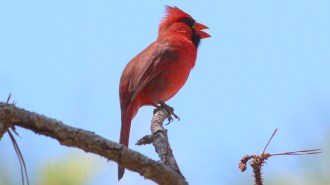 Animals
AnimalsAround the world, birds sing longer in light-polluted areas
In light-polluted landscapes, birds' singing time is an average of 50 minutes longer per day. It's still unclear if this hurts bird health or helps.
By Jake Buehler -
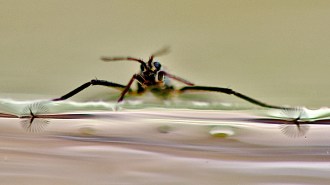 Animals
AnimalsFrilly bug feet inspire a water-striding robot
Ripple bugs’ nimble movements on the surface of water inspired a robot with automatically unfurling fans on its feet.
-
 Health & Medicine
Health & MedicinemRNA vaccines hold promise for many diseases. Now the tech is under fire
Researchers warn that halting federal contracts for mRNA vaccine research could weaken pandemic preparedness and slow medical advances.
By Meghan Rosen -
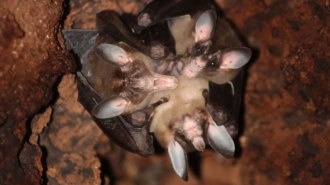 Animals
AnimalsThese giant carnivorous bats hug, cuddle — and even share dinner
Infrared cameras in Costa Rica revealed that the world’s largest carnivorous bat maintains close social bonds through wing wraps and prey sharing.
By Jay Kakade - Astronomy
A dying star revealed its heart
Before exploding, a star shed most of its layers, giving a glimpse at a massive star’s deep interior. The event may represent a new kind of supernova.
-
 Health & Medicine
Health & MedicineCould babies get bird flu through breast milk? Maybe, a study hints
H5N1 bird flu might infect human mammary glands, potentially allowing the virus to show up in breast milk.
-
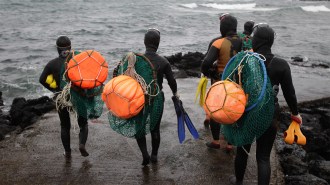 Humans
HumansThese female divers spend more time underwater than any other humans
At an average age of 70, these women divers in South Korea still forage in the sea up to 10 hours a day and spend more than half of that time underwater.
-
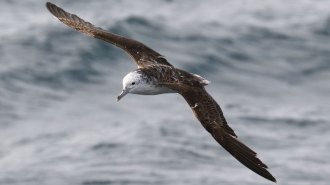 Animals
AnimalsStreaked shearwaters poop only while flying over the ocean
In-flight defecation may help the birds stay away from feces that can contain pathogens such as bird flu while also fertilizing the ocean.
-
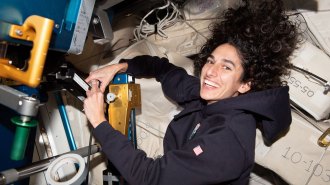 Space
SpaceAstronauts need oxygen. Magnets could help
Adding a magnet could simplify the process of producing oxygen in space, making a crewed mission to Mars more feasible.
-
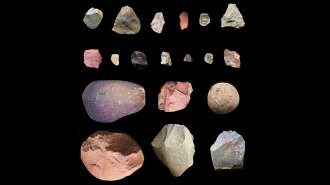 Archaeology
ArchaeologyAncient hominids made long road trips to collect stone for tools
A Kenyan site shows early hominids transported stone 13 kilometers for toolmaking as early as 2.6 million years ago.
By Bruce Bower -
 Astronomy
AstronomyThe oldest known black hole formed more than 13.3 billion years ago
The Webb telescope found that a far-off little red dot is the oldest known black hole, shrouded by gas that could help explain the ruby color.
-
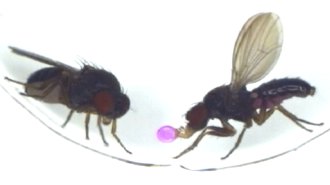 Animals
AnimalsA single protein makes lovesick flies spill their guts
Producing a male-specific protein in digestion-related neurons may have led to the evolution of an odd “romantic” barfing behavior in one species of fruit flies.